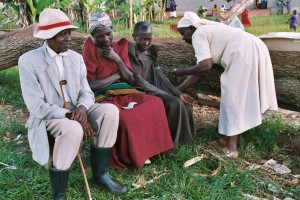The 25th April is World Malaria Day. Established by the World Health Organisation (WHO) in 2008, its purpose is to highlight the global effort to control malaria. The theme for 2016 is “End Malaria for Good”.

About malaria
Malaria is preventable and treatable, yet in 2015 an estimated 214 million cases of malaria occurred worldwide and 438,000 people died, mostly children in the African Region, where the disease is the leading cause of death for children under five. In 2015, sub-Saharan Africa, where Inter Care supports beneficiaries in six countries, was home to 88% of all malaria cases and 90% of all malaria deaths.
About 3.2 billion people – almost half of the world’s population – are at risk of malaria.
Because malaria is a global emergency that affects mostly poor women and children, it perpetuates a vicious cycle of poverty in the developing world. While not all adult cases of malaria are fatal, the disease keeps adults out of work and robs families of precious disposable income. In all, malaria costs Africa an estimated $12 billion a year in lost productivity, and keeps more children out of school than any other disease, causing up to 10 million missed days for African schoolchildren each year.
What Inter Care is doing
Until malaria is eliminated for good, it is vital that effective treatment is available to those who have contracted the disease. In all six countries to which Inter Care sends medical aid, malaria remains a major problem. People living in poor communities, such as those served by the health units which Inter Care supports, are particularly vulnerable to malaria and often lack access to diagnosis and treatment. Less malaria means healthier societies, increased attendance at school and work, more productive communities, and stronger economies.
Inter Care regularly sends Quinine to its beneficiaries for the treatment of malaria. Although some governments in Africa are now providing free supplies of Coartem, a drug used to treat malaria, many do not provide free Quinine, despite the fact that Coartem needs to be followed by a course of Quinine for treatment to be effective. Many health centres are not able to afford to buy Quinine and rely on the supply they receive from Inter Care.
